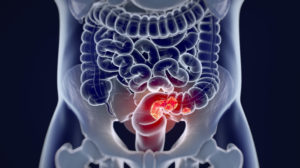Yoga offers various health benefits, but maybe there’s more to it than we think. Studies show that there’s a potentially powerful link between yoga and epigenetics. Read on to learn all about it.
RELATED: Obesogenic Diet Drives Epigenetic Predisposition To Metabolic Disorders
In this Article:
- Yoga Health Benefits
- Epigenetics, Stress, and Inflammation
- The Link Between Yoga and Epigenetics
- The Future of Epigenetics
The Science Behind the Yoga and Epigenetics Link
Yoga Health Benefits
Yoga is an ancient holistic discipline that originates from India. Its primary purpose is to foster harmony between the mind, body, and environment.
There are several schools of yoga, and they differ in terms of their focus. But all of them involve physical, mental, and spiritual exercises.
Studies show that yoga offers a variety of physical and mental health benefits. Some of these health benefits are:
- Improves flexibility
- Develops better coordination
- Strengthens muscles
- Improves cardiovascular endurance
- Promotes weight loss
- Battles fatigue
- Promotes mindfulness
- Relieves stress and anxiety
- Improves quality of life
- Promotes emotional regulation
Apart from these benefits, though, new studies show that yoga may also positively impact epigenetic mechanisms.
Epigenetics, Stress, and Inflammation
Epigenetics is a field that focuses on the chemical tags that can alter gene expressions. There’s very little you can do about your genes’ structure and composition, but scientists are learning that we do have some control over these chemical tags that control DNA activity.
Lifestyle factors such as diet and exercise can have an impact on gene expression. Emotional factors, such as stress, may also contribute to unwanted epigenetic changes.
The body’s stress response is an adaptive mechanism. When stress creeps in, your body responds by releasing the stress hormones adrenaline and cortisol.
A flood of stress hormones helps boost performance and, in turn, survival. Unfortunately, when stress becomes chronic, the constant flood of stress hormones may do more harm than good to the body.
Studies show that the epigenetic consequence of chronic stress is inflammation. Stress activates transcription factors like NF-kb. This, in turn, triggers an inflammatory response by producing cytokines.
What are cytokines? These are proteins that cause cellular inflammation. Short term, it initiates the fight-or-flight response.
Just like stress, acute inflammation isn’t necessarily a bad thing. For example, our bodies use inflammation as an immune response to infections.
Chronic inflammation is another story. For years, researchers have been linking chronic inflammation to the aging process and age-related diseases.
These diseases include:
- Diabetes
- Cardiovascular diseases
- Arthritis and joint diseases
- Allergies
- Chronic obstructive pulmonary disease
- Depression, anxiety, and mood disorders
- Gastrointestinal complications
Chronic inflammation can be detrimental to your healthspan because it may lead to changes in certain epigenetic mechanisms such as DNA methylation and histones modification. The good news is that you can do things to change this—and yoga may be one of these things.
RELATED: The World’s Most Accurate Biological Age Test: It’s In Your Genes
The Link Between Yoga and Epigenetics
Studies already show that yoga helps relieve psychological stress, but what about the physiological consequences of stress?
Several studies show that mind-body interventions, such as yoga, may be able to change gene expression. In particular, preliminary evidence shows that practicing yoga may be able to reverse changes brought on by a stress-induced inflammatory response.
Engaging in yoga helps lower NF-kb and cytokine levels. Over time, this reverses the pro-inflammatory gene expression patterns. When inflammation is in control, there’s a lower risk of inflammation-related conditions and illnesses.
More studies are needed to confirm and better understand the positive impact of yoga on the epigenome, but the preliminary results are promising. Many individuals engage in yoga for its various health benefits, but they don’t realize how it can also be beneficial at a cellular level.
Note: If you’re a beginner at yoga, it’s essential to work with a professional yoga instructor. The incorrect practice of yoga may lead to injuries. If you have any pre-existing medical conditions, it’s also important to talk to your doctor before beginning any new exercise regimen.
The Future of Epigenetics
Epigenetics is a growing field. Scientists continue learning more about the epigenome by doing more research and conducting more clinical trials.
An important takeaway from epigenetics is that your genes are not necessarily your destiny. There are things you can do to improve gene expression.
There are already tried and tested epigenetic applications that can help you optimize your healthspan. If you’re interested in learning more about this, visit the TruDiagnostic website.
What are your thoughts on the link between yoga and epigenetics? Please share them with us in the comments section below.
Up Next:





